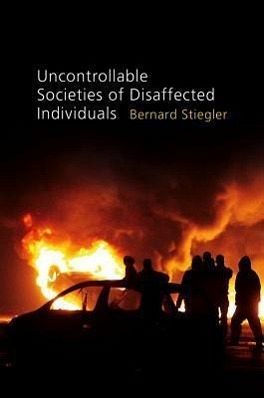
Uncontrollable Societies of Disaffected Individuals
Disbelief and Discredit, Volume 2
Versandkostenfrei!
Versandfertig in über 4 Wochen
64,99 €
inkl. MwSt.
Weitere Ausgaben:

PAYBACK Punkte
32 °P sammeln!
Max Weber argued that the development of capitalism would lead to the progressive rationalization and disenchantment of society: today this process is reaching its endpoint and capitalism is collapsing into a disturbing kind of irrationality. It engenders spiritual misery -- a paralysis of the function of the human mind or spirit -- where reason disappears as a motive of hope, a "kingdom of ends" in Kants sense. Absolute disenchantment afflicts all those who no longer have anything to expect from the development of hyper-industrial society. Those who are desperate become "desperados," and they...
Max Weber argued that the development of capitalism would lead to the progressive rationalization and disenchantment of society: today this process is reaching its endpoint and capitalism is collapsing into a disturbing kind of irrationality. It engenders spiritual misery -- a paralysis of the function of the human mind or spirit -- where reason disappears as a motive of hope, a "kingdom of ends" in Kants sense. Absolute disenchantment afflicts all those who no longer have anything to expect from the development of hyper-industrial society. Those who are desperate become "desperados," and they are becoming more and more numerous. No longer having anything to expect means, at the same time, no longer having anything to fear. And the proliferating repressive mechanisms that are supposed to cope with the effects of this loss of authority turn out to be less and less effective. For such measures engender more and more the opposite of that for which they were intended, but in extreme and totally irrational, unpredictable forms.-- Back cover.


